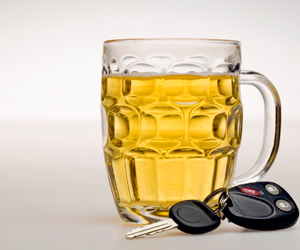 Jan. 29, 2014 – A circuit court judge ordered Eric Seatz to install an ignition interlock device in his vehicle, even though it was his first-offense operating while intoxicated. Recently, an appeals court ruled that the order did not violate state OWI law.
Jan. 29, 2014 – A circuit court judge ordered Eric Seatz to install an ignition interlock device in his vehicle, even though it was his first-offense operating while intoxicated. Recently, an appeals court ruled that the order did not violate state OWI law.
The reason: More than 10 years before his Wisconsin conviction, Seatz was convicted on an OWI charge in Michigan. The Michigan conviction did not count in determining whether Seatz was a repeat offender, the appeals court noted, because it was more than 10 years old. But the court could count it in ordering an ignition interlock device.
Unlike the statute that determines penalties for for multiple OWIs that occur within a 10-year period – which did not apply to Seatz’s case – the ignition interlock device statute “provides no restrictions on how to count prior convictions,” wrote Judge Paul Reilly for a three-judge panel in Village of Grafton v. Seatz, 2013AP1414 (Jan. 29, 2014).
Police arrested Seatz in September 2012 after a chemical test revealed his blood alcohol level was well over the legal limit. Seatz was ultimately convicted for first-offense OWI. He had been convicted on an OWI charge in Michigan in 1997.
In Wisconsin, a second OWI conviction does not count – for purposes of determining monetary and jailtime penalties for repeat offenses – if the prior conviction is more than 10 years old.
At the same time, courts can only order ignition interlocks against repeat OWI offenders, first-time offenders who register an alcohol concentration above 0.15, or if someone refuses chemical testing.
Seatz registered a 0.13 blood alcohol concentration and he did not refuse chemical testing. Thus, the arguments focused on wheter Seatz as a repeat offender for purposes of ordering the ignition device.
Wis. Stat. section 343.301(1g) says courts must order ignition interlock systems if the person has “other convictions, suspensions, and revocations counted under s. 343.307(1),” which includes “convictions under the law of another jurisdiction.”
The court rejected Seatz’s argument that his “other conviction” could not be counted for interlock ignition purposes because of Wisconsin's 10-year rule.
“The ten-year look-back provision … for purposes of determining whether to charge or penalize a repeat OWI offender civilly or criminally is independent of whether a person has one or more prior OWI convictions … and has no effect on orders for ignition interlock devices,” Judge Reilly explained for the panel.
